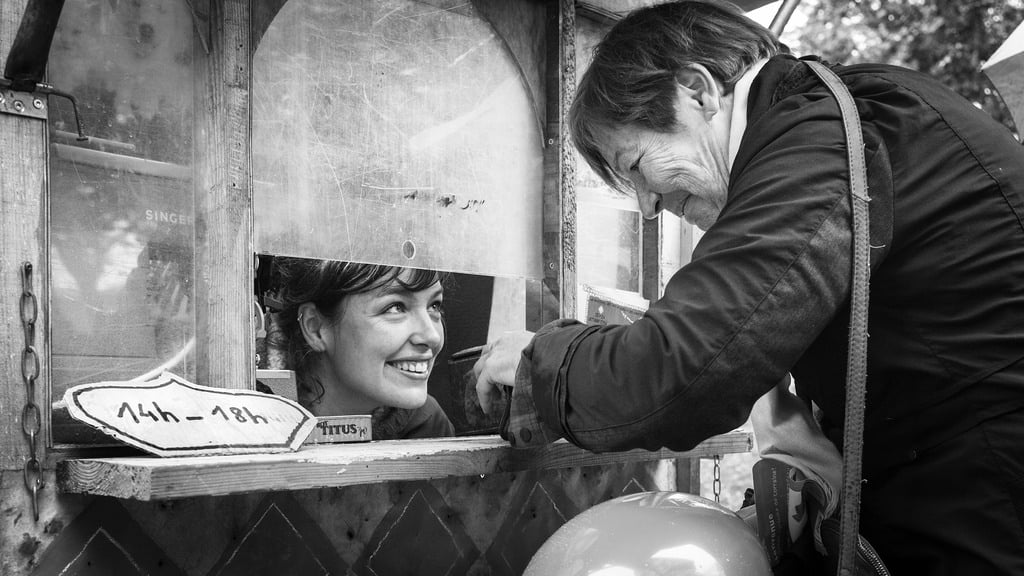
Photo: dhodho.net via Visual Hunt / CC BY-SA
Career guide: Front of house
What’s it like working front of house? And how much can you expect to earn? Zoe Hardie answers your most common questions.
Front of house refers to the areas in a theatre, venue or visitor attraction that are accessed by the public. Front-of-house staff are responsible for looking after the public to make sure their visit is safe and enjoyable.
Is front of house for you?
Front of house can bit a bit of a catch-all phrase, so if you work in this role you can expect to be anything from an usher to box office staff.
Whatever area of front of house you are in, you will need to polite, patient, friendly and a good communicator.
Stamina can be important, especially for ushers who are on their feet for long periods.
As front-of-house jobs often involve working irregular hours, including evenings and weekends, it may not be for you if you want a nine to five job.
A good level of numeracy is necessary for box office work, as well as well-developed IT skills. You also need to be a team-player and able to work in a fast-paced environment.
Why work in front of house?
Many people enjoy the variety of responsibilities and take satisfaction from providing good customer service.
Gabrielle Gifford (below), Front of House Coordinator at Motorpoint Arena Cardiff, gave some insight into her work: “No two days are ever the same and the hours always vary. However, this keeps me on my toes and allows me room to progress. My role can include booking in venue stewards for shifts, hiring new venue staff, ensuring there is an adequate number of staff to cover the events and running our venue hospitality packages.
“When standard office hours are over, my role leads me into the running of the venue concerts where I am responsible for the safe running of the front-of-house department. This includes dealing with our customers, ensuring they have a great experience and assisting with any problems they may encounter at the venue, while also liaising with our security and first aid teams to ensure the safety of the event is never compromised. 
“I always find it rewarding when the long hours pay off and you see thousands of happy fans leaving the venue at the end of the night.”
Front-of house work can be a great introduction to a career in the arts, putting you in the front line of activity and exposing you to the many different teams that keep a venue in operation.
The sub-sectors which tend to need front-of-house staff (from museums and galleries to music and performing arts) are growing on the whole, and front-of-house staff provide a crucial support service for them.
How do I get started?
Academic entry qualifications can vary, although most employers will look for a good standard of English, IT and Maths at GCSE as a minimum.
Enthusiasm and a proven interest in the work can be equally important. You should be a ‘people person’ with an interest in customer care. Any experience working in retail or customer services will be useful. Your aim should be to build your customer service skills along with an understanding of how a building that houses arts events is run.
As front-of-house work is seen as a way into live events, some applicants can be highly qualified with degrees in subjects such as Theatre Studies and Museum Studies. However, these are not necessary for getting work in this area.
It is always worth approaching possible companies with a well-prepared CV and covering letter or email, as jobs may not always be widely advertised or they may have casual work available.
Apprenticeships are one way into front-of-house work. Apprentices are likely to be on the Creative & Cultural Venue Operations or Business Administration frameworks. If you choose the apprenticeship route, you will earn money, gain skills and achieve work-related qualifications at the same time.
Gabrielle explained her journey so far: “I got into the live music sector through my apprenticeship – I had no previous experience in this field. Since my apprenticeship, I have met many contacts within the industry. This has allowed me to work at many of Live Nations’ biggest music festivals, such as Creamfields and Wireless, which has always been a dream of mine.”
What are my career prospects?
Front-of-house staff are employed throughout the sector, so you could work in a large national museum as part of a big team, or a small theatre company as the only front-of-house staff member.
Chances of progression are good and vacancies are widely advertised. It is common for ushers and front-of-house assistants to be promoted to box office and front-of-house managers. However, you may need to seek employment in other organisations to move up the ladder.
Earnings for front-of-house staff can vary greatly according to the size and location of the venue. Casual temporary contracts are common, where wages can start at the minimum wage for an usher or box office assistant and rise with more experience. If you work for a large venue or are based in London, wages are normally higher. A box officer manager might start on around £8.20 an hour, which equates to an annual salary of £17,000. Box office managers with more experience, or who are based in London might earn between £18,000 and £22,000, or higher.
There are so many routes in, but first job titles might be usher, box office assistant, receptionist, front-of-house assistant or cultural venue operations apprentice. The work of an usher, for example, includes helping people enter and exit a venue, taking account of special access requirements. They can check tickets, answer queries and sell merchandise.
Box office staff will use computerised ticketing systems to process tickets. They may handle cash for events or exhibitions, provide administrative support to venue managers, undertake receptionist duties and deal with the public face-to-face and over the phone. They may deal with a wide range of people, including promoters and venue managers. They will often monitor ticket sales, producing reports and financial information for management and therefore contributing to the effective running of the business.
Zoe Hardie is Digital Coordinator at Creative Choices/Creative & Cultural Skills.
ccskills.org.uk/careers
Tw @CreativeChoices
E [email protected]
Join the Discussion
You must be logged in to post a comment.